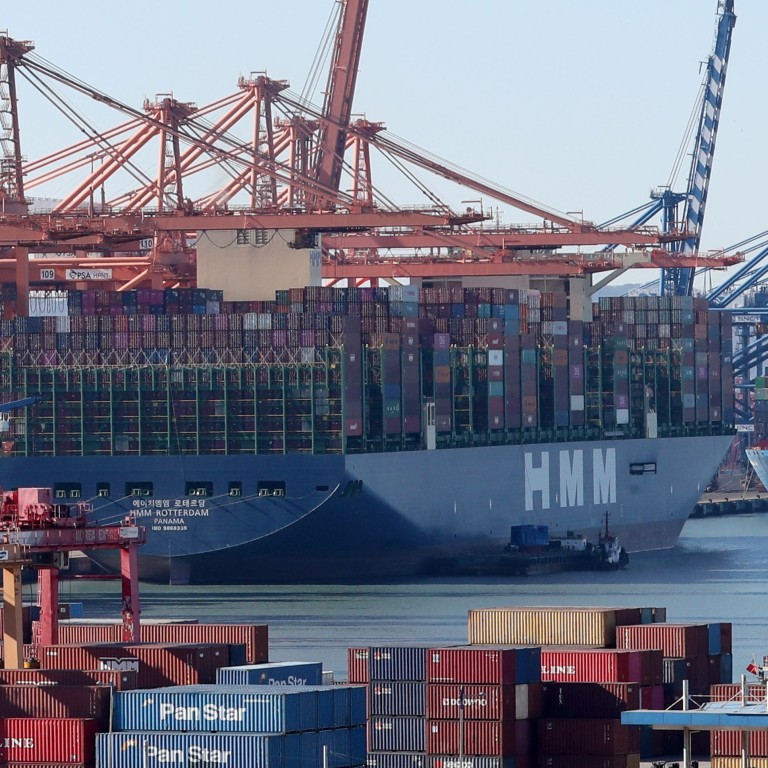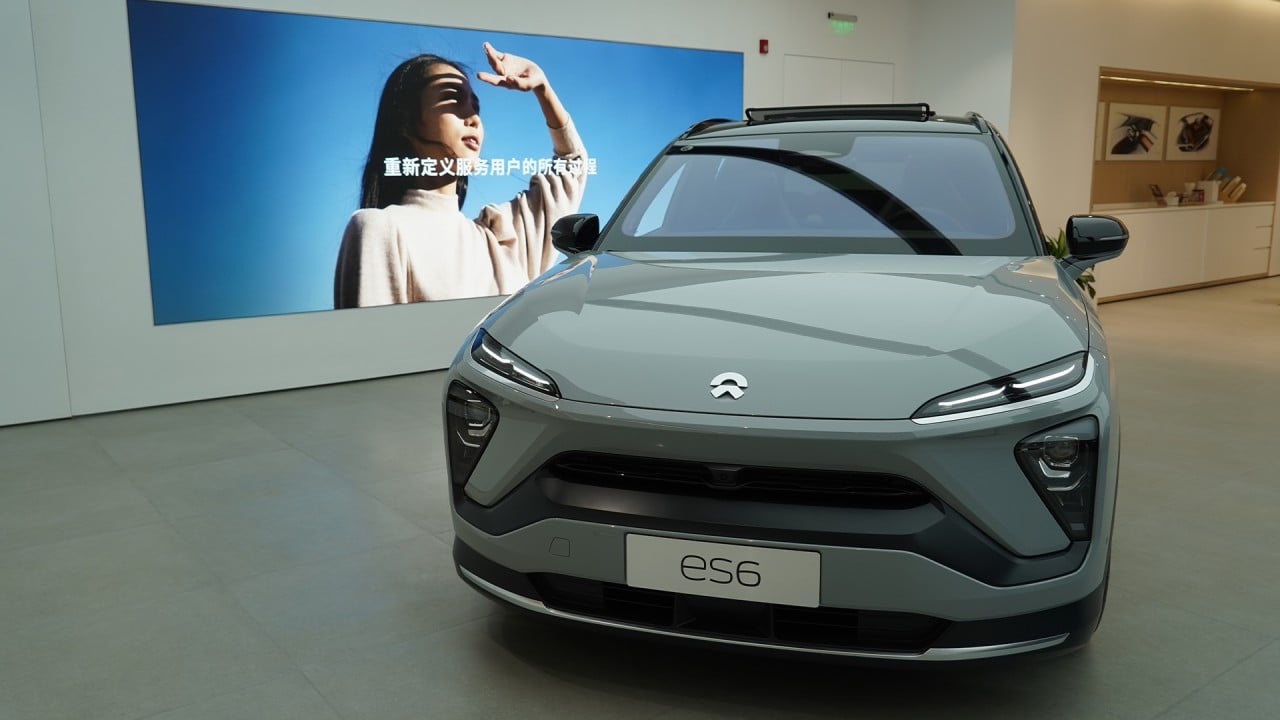
South Korea’s supply chain reliance on China leaves it more exposed than the US, Japan: report
- Some 29.3 per cent of South Korea’s material parts imports came from China in 2020, higher than Japan and the United States, a new report says
- South Korea’s import reliance is most pressing in four areas: semiconductors, large-capacity batteries, rare earth metals and medical supplies
South Korea has a higher dependency on China for semi-finished goods and material parts than Japan and the United States, and Seoul must take action to mitigate associated risks, a new report said on Wednesday.
Some 29.3 per cent of South Korea’s material parts imports came from China in 2020, whereas the rate for Japan and the US was 28.9 per cent and 12.9 per cent respectively, said the Federation of Korean Industries (FKI), which represents South Korea’s major conglomerates and associated members.
Its dependence on China in these four industries exceeded both other countries, but the risk was strongest for large-capacity batteries, because South Korea imported 93.3 per cent of its supply from the mainland in 2020, compared to Japan’s 66.1 per cent and 43.4 per cent in the US.
Nowadays, global supply chain issues have transcended from being just economic matters and are combined with the country’s security agenda
“Nowadays, global supply chain issues have transcended from being just economic matters and are combined with the country’s security agenda,” said Kim Bong-man, the head of FKI’s international cooperation department.
“As a result, major countries such as the US and EU are making efforts to expand their domestic production facilities for key items.
“South Korea should also make policy and institutional efforts to reduce dependence on specific countries such as China and expand domestic production.”
South Korea’s dependence on Chinese imports rose last year at the fastest pace since 2017, according to the report, titled “The current state of affairs of South Korea, US and Japan’s import reliance on China and future tasks”.
The FKI analysed data from the International Monetary Fund, the World Bank and the Korea International Trade Association published between 2017 and 2021 to come to their conclusions.
They found that in terms of intermediate goods, South Korea’s reliance on Chinese imports in 2019 was significantly heavier than that of Japan and the US, and well above the international average of 10.4 per cent.
South Korea urged to rethink trade with China amid intensifying competition
The reliance on China for batteries could partly be explained by growing domestic sales of electric vehicles, despite the fact that South Korea is capable of producing its own large-capacity batteries, the federation said.
The report recommended that the South Korean government enhance the country’s global supply chain by strengthening policy support for key industries, such as semiconductors and batteries, and prepare for raw material procurement risks.


